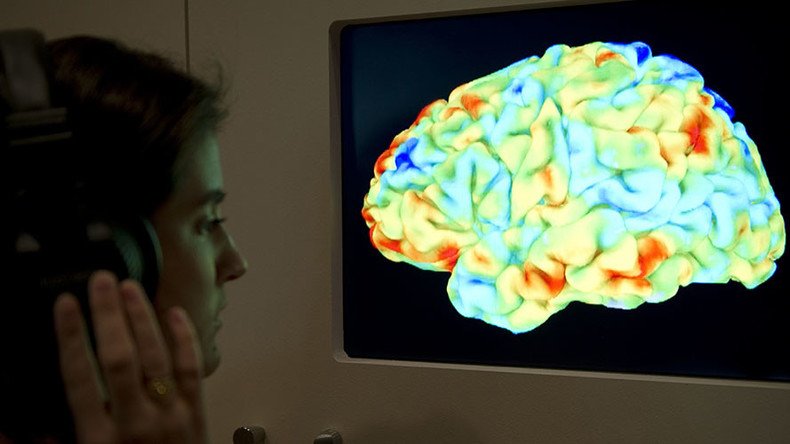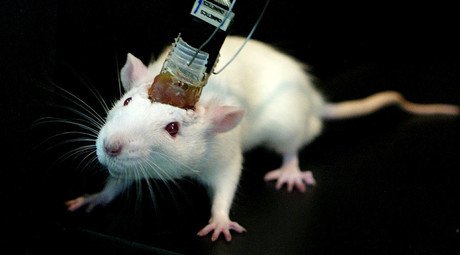Scientists invent dissolvable brain implant the size of grain of rice

Scientists have invented a tiny brain implant which dissolves inside a patient's body after monitoring temperature and blood pressure. About the size of a grain of rice, the innovative chip does away with the need for wires and surgical extraction.
The biodegradable implant technology, published in the journal Nature on Monday, has so far proven successful in the brains of rats. When placed under the skin of rats but on top of their skulls, the implants were able to monitor temperature and intracranial pressure. That information was fed wirelessly to computers, and accurately matched the readings on conventional monitors.
Such monitoring is often necessary when keeping tabs on a patient's health and recovery following an injury, and the scientists behind the invention believe the chip could successfully be implanted in human brains and other vital organs in the future.
"The ultimate strategy is to have a device that is entirely implanted, intimately connected with the organ you want to monitor and can transmit signals wirelessly, allowing doctors to intervene if necessary to prevent bigger problems," Washington University neurosurgeon Dr. Rory Murphy said in a statement.
The chip is made from a dissolvable silicon material mixed with a harmless polymer called polyactic-co-glycolic acid, which would allow it to disappear after its work is completed. Experiments showed that the material completely dissolves in saline solution after a few days.
“The benefit of these new devices is that they dissolve over time, so you don't have something in the body for a long time period, increasing the risk of infection, chronic inflammation and even erosion through the skin or the organ in which it's placed,” Murphy said.
The dissolvable chip means there are no cumbersome wires associated with the implant, and it doesn't need to be surgically removed when it has finished its job, thereby decreasing risk for the patient. Current implants leave patients susceptible to infection, bleeding and allergic reactions.
"...The devices commonly used today are based on technology from the 1980s. They're large, they're unwieldy, and they have wires that connect to monitors in the intensive care unit. They give accurate readings, and they help, but there are ways to make them better,” said Murphy.
The next step for Murphy and his team is to test the dissolvable implant on humans.













